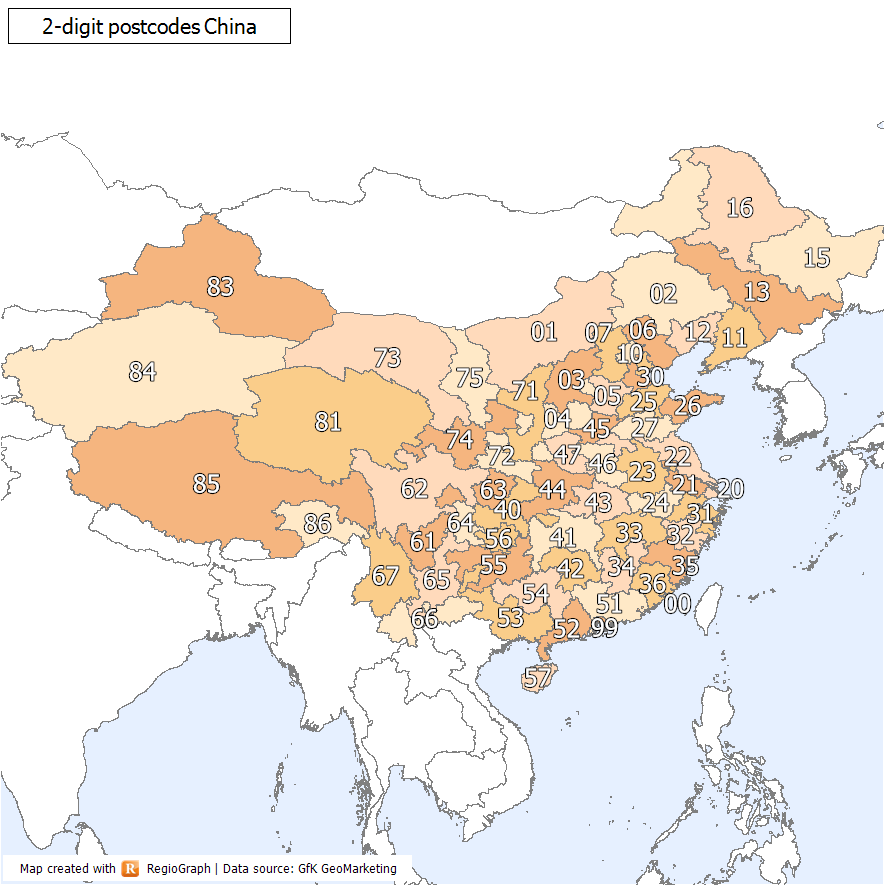|
Gucheng County, Hubei
Gucheng County () is a county of northwestern Hubei province, People's Republic of China, located in the eastern foothills of the Daba Mountains. It is under the administration of Xiangyang City, and is served by G70 Fuzhou–Yinchuan Expressway The Fuzhou–Yinchuan Expressway (), designated as G70 and commonly referred to as the Fuyin Expressway () is an expressway that connects the cities of Fuzhou, Fujian, China, and Yinchuan, Ningxia. It is in length. The expressway was completed wi .... , it had a total population of 540,000 residing in an area of . Administrative divisions Nine towns: * Chengguan (), Shihua (), Shengkang (/), Miaotan (), Wushan (), Cihe (), Nanhe (), Zijin (), Lengji () The only township is Zhaowan Township () Other areas: * Xieshan Forestry Area () Climate References External links Counties of Hubei Xiangyang {{Hubei-geo-stub ... [...More Info...] [...Related Items...] OR: [Wikipedia] [Google] [Baidu] |
Postal Code Of China
Postal codes in the People's Republic of China () are postal codes used by China Post for the delivery of letters and goods within mainland China. China Post uses a six-digit all-numerical system with four tiers: the first tier, composed of the first two digits, show the province, province-equivalent municipality, or autonomous region; the second tier, composed of the third digit, shows the postal zone within the province, municipality or autonomous region; the fourth digit serves as the third tier, which shows the postal office within prefectures or prefecture-level cities; the last two digits are the fourth tier, which indicates the specific mailing area for delivery. The range 000000–009999 was originally marked for Taiwan (The Republic of China) but is not used because it not under the control of the People's Republic of China. Mail to ROC is treated as international mail, and uses postal codes set forth by Chunghwa Post. Codes starting from 999 are the internal codes use ... [...More Info...] [...Related Items...] OR: [Wikipedia] [Google] [Baidu] |
A Dictionary Of Current Chinese
''Xiandai Hanyu Cidian'' (), also known as ''A Dictionary of Current Chinese'' or ''Contemporary Chinese Dictionary'' is an important one-volume dictionary of Standard Mandarin Chinese published by the Commercial Press, now into its 7th (2016) edition. It was originally edited by Lü Shuxiang and Ding Shengshu as a reference work on modern Standard Mandarin Chinese. Compilation started in 1958 and trial editions were issued in 1960 and 1965, with a number of copies printed in 1973 for internal circulation and comments, but due to the Cultural Revolution the final draft was not completed until the end of 1977, and the first formal edition was not published until December 1978. It was the first People's Republic of China dictionary to be arranged according to Hanyu Pinyin, the phonetic standard for Standard Mandarin Chinese, with explanatory notes in simplified Chinese. The subsequent second through seventh editions were respectively published in 1983 (Reorganized Edition- now seen ... [...More Info...] [...Related Items...] OR: [Wikipedia] [Google] [Baidu] |
Xieshan Forestry Area
Xieshan () is a mountain resort in Gucheng County, Hubei province, China, 35 kilometers southwest of Xiangyang Xiangyang is a prefecture-level city in northwestern Hubei province, China and the second largest city in Hubei by population. It was known as Xiangfan from 1950 to 2010. The Han River runs through Xiangyang's centre and divides the city no ... city. It was established by Western Protestant missionaries References Township-level divisions of Hubei Tourist attractions in Hubei Xiangyang {{Hubei-geo-stub ... [...More Info...] [...Related Items...] OR: [Wikipedia] [Google] [Baidu] |
The Commercial Press
The Commercial Press () is the first modern publishing organisation in China. History In 1897, 26-year-old Xia Ruifang and three of his friends (including the Bao brothers Bao Xian'en and Bao Xianchang) founded The Commercial Press in Shanghai. All four were Protestant Christians who received their training at the American Presbyterian Mission Press. The group soon received financial backing and began publishing books such as Bibles. In 1914, Xia attempted to buy out a Japanese company that had invested in The Commercial Press. Four days later he was assassinated. There was much speculation as to who was behind the assassination; no one was ever arrested for the crime. From 1903 Zhang Yuanji (张元济) (1867-1959), reacting to China's moves towards a new curriculum, created a number of textbook and translation series, and from 1904 and in subsequent years he launched popular periodicals, such as ''Dongfang dazhi'' (Eastern Miscellany)(1904), ''Jiaoyu zazhi'' (The Chinese ... [...More Info...] [...Related Items...] OR: [Wikipedia] [Google] [Baidu] |

